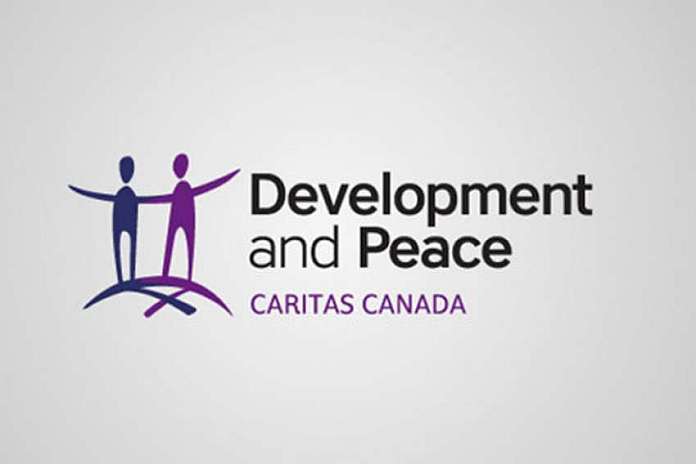By Michael Swan
TORONTO, Canada (The Catholic Register) – Canada’s bishops and development and peace hope to end years of accusations, suspicions and investigations with a new governance structure that is transparent, streamlined and gives bishops closer oversight of Canada’s development agency.
“It is a beginning, a new beginning,” development and peace deputy executive director Romain Duguay told The Catholic Register.
“What a joy to feel there is greater solidarity than ever in this endeavour that is so essential to the mission of the Church,” said Canadian Conference of Catholic Bishops (CCCB) vice president Bishop Raymond Poisson of Saint-Jerome, Quebec, in a May 5 press release.
The reforms come as development and peace faced ongoing scrutiny and declining revenue. Proceeds from its ShareLent fundraising campaign fell from $8.3 million in 2016-17 to $6.7 million in 2017-18. Amid investigations, the organization has not published a 2018-19 annual report.
The new governing structure will reduce the number of elected members on the Development and Peace national council almost in half, from 21 to 11. Those 11 members now will be joined by four bishops to be appointed by the CCCB.
The new, leaner national council will be responsible for fixing four key problems that have plunged one of Canada’s largest Catholic movements into a state of repeated crisis since development and peace was accused in 2009 of funding some projects by partner organizations that supported abortion.
An investigation of 248 agencies that followed the 2009 accusations concluded that 15 partnerships were problematic, including two cited as being particularly egregious. Those findings prompted changes intended to ensure that money from the Catholic charity went exclusively to organizations that were aligned with Church teaching.
A second review came after similar questions emerged in 2017 concerning 52 development and peace partner agencies. Twelve bishops subsequently suspended their financial support, although it was eventually reinstated provided no money went to agencies under review. That was followed in 2019 by the CCCB hiring Deloitte Canada to recommend how Development and Peace could be reformed to meet the expectations of the bishops.
“In 50 years there has not been any scandal with D&P,” said Duguay. “Our projects are still being said to be extraordinary. You should talk to the partners and even the bishops in the South. They will say the same thing.”
The four areas targeted for reform are crisis management, partnership criteria, organizational culture and communications. In the end, the organization’s new policy should include a clearly defined method for choosing its partners in poor countries, Duguay told The Catholic Register. The current partnership policy was issued in 2014.
“So five years later, it makes sense that we sit down and make sure it’s relevant,” Duguay said. “It’s a realignment of certain processes, criteria and behaviours which makes sense.”
Development and peace will no longer treat the names and locations of its partner organizations and projects as secret.
“There was a culture of saying, because we have some partners who are in a situation of life and death we are not going to name the partner. So the culture was then let’s not (name partners),” Duguay said. “Today, everybody wants to know where the money is going. They want to know also what we are doing.”
Adding four bishops to the national council should mean that bishops know and understand what development and peace is doing and how it works, Duguay said.
“It’s to make sure that the bishops of Canada are much more aware of what we’re doing so they are much more capable of telling the Catholics of Canada that there’s no problem, no issue with development and peace,” he said.
“The fact that the bishops are coming back to the table will help us to be more present (in the Church), because the bishops will be able to carry the message.”
The changes are being introduced to development and peace members in a series of regional online meetings across Canada in French and English. The CCCB will name it’s four representatives at a later date.
Since its founding in 1967, development and peace has provided over $500 million to improve living and working conditions in 28 countries in Africa, Asia and Central America, completing over 15,000 projects worldwide.





